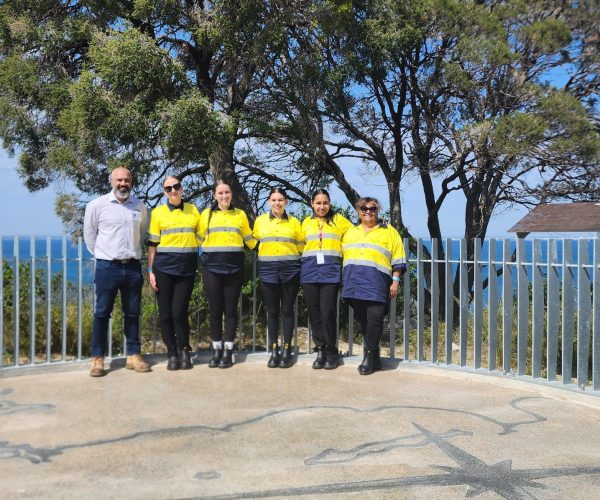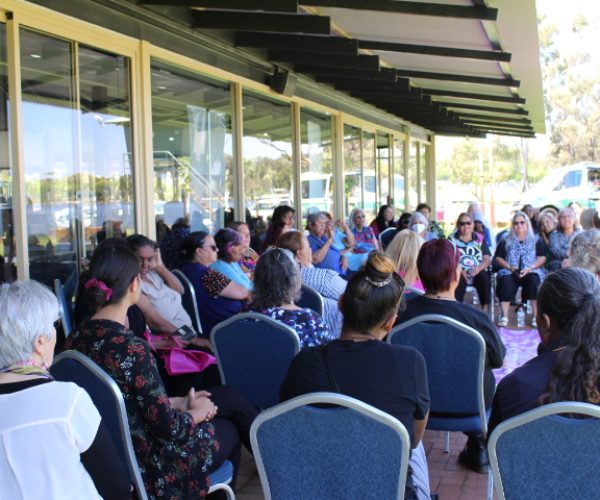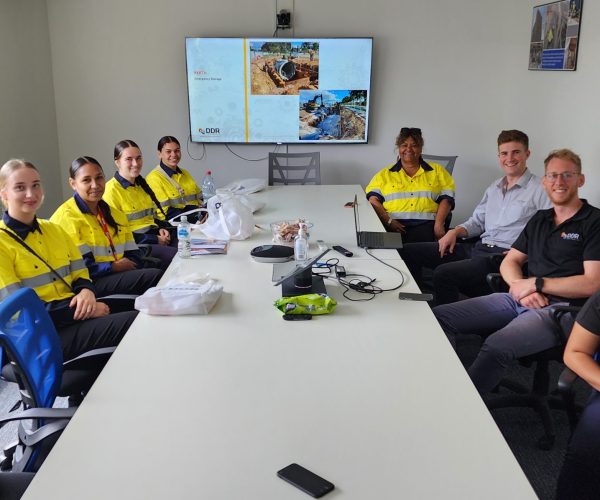DDR director Tom Hutcheson and non-executive director Katarina Skene are extremely proud of their mum and all she has achieved over her 90 years. Here, Katarina tells us her story.
“Our mum, Kathleen Ruth Hutcheson (nee Willieboy-Lewis), also known as Aunty Kate or Aunty Kathy, is a proud Wakka Wakka and Kabbi Kabbi woman who has eight children, 15 grandchildren and six great grandchildren. She was born at Barambah Aboriginal Reserve on 2 March 1933. The settlement, now known as Cherbourg Mission, is located about 175km north-west of the Sunshine Coast.
Mum is one of the Stolen Generation. She was taken from her mother at birth and placed in the Barambah Aboriginal Reserve’s girls’ dormitory. To have Mum released from the dormitory, her mum’s younger sister Aunty Janey married Uncle Duka Hart and her mum’s other sister Aunty Audrey, who was a teacher, lived beside them in a humpy.
Cherbourg’s ‘police protector of Aborigines’ controlled every aspect of residents’ lives – ceremony, family connections, language, etc. Only English was to be spoken – language was forbidden and, as a result, eventually lost.
If you didn’t play by the rules, then you were sent away to Palm Island (63 kilometres, as the crow flies, north of Townsville) or Woorabinda (230 kilometres inland from Gladstone). Quite a few of Mum’s uncles, aunties and cousins were sent to these places, never to be heard of again.
Confined to the reserve, Mum was only able to leave with the permission of the police protector. Due to her family being respected and strong-willed, Mum was allowed to return to her family when she was eight years old.
Before the police protector would release her to her mother Elsie Willieboy and stepfather George Lewis, however, George was required to formally adopt her. Mum has no knowledge of who her biological father is.
Mum was educated in Brisbane but left school in year 10 to commence working. She spent 13 years on a cattle station near Winton in Central West Queensland, before moving to the Territory.
In around 1967, after Mum’s marriage broke down, she left Queensland to join her sisters in Tennant Creek. At this time, she was a single mother with five children.
Mum worked for the Department of Education as an Aboriginal home liaison officer in Tennant Creek, while also doing volunteer work for the Church of England.
While working for the Department of Education, Mum drove a big blue bus and my younger twin brothers and I had to accompany her. We used to go to the ‘local village’, as it was called, to pick up the Aboriginal children and take them to school. I believe nearly every child Mum supported went on to complete year 12.
Mum went through a second relationship breakdown and became a single mum with eight children – six boys and two girls (Tom is the first-born, I am the sixth-born). Mum always had – and still has – an open-door policy so any of her children’s friends were able to live with them at any time.
A keen sportswoman, Mum had previously represented Queensland in Cricko (women’s cricket). In Tennant Creek, she played softball for the Saints for more than 10 years and even went on to represent Tennant Creek. She was an assistant coach for the junior softballers and is now a life member of the Saints.
In 1982, Mum moved her younger kids to Darwin and in 1983, at the age of 50, she went back to undertake a certificate in community work for Aboriginal people through the Aboriginal Task Force at Darwin University. She was one of the first students to complete the course.
After two years, Mum received her certificate and was able to help other Aboriginal people through her work at the National Australian Aboriginal Legal Aid Service (NAALAS), now known as the North Australian Aboriginal Justice Agency (NAAJA). She wanted to show her younger kids that it didn’t matter what age you were, you could go back and study at any time.
Mum worked at NAAJA until she retired at 71. She is a long-time board member for NAAJA, as well as a committee member for St Martin de Porres Catholic Aboriginal Church.
In 1997, Mum lost her fourth-eldest, son Shane (32), to suicide. It was a very difficult time, however, she still managed to share her love with everyone.
In 2009, Mum received a NAIDOC Award from MP Marion Scrymgour for ‘serving the community with distinction’. She was also reconised in ‘Celebrating 40 Years of Aboriginal Legal Services in the Top End’.
Mum is referred to as ‘Aunty Kate’ which is, in Aboriginal and Torres Strait Islander culture, a great honour and a sign of respect from Elders, community, other Aboriginal and Torres Strait Islander people and non-Indigenous people.
Mum is considered an Elder and is accepted by the Larrakia Elders and peoples, and the community of Darwin where she lives. This is in stark contrast to when she was a child. As an Aboriginal person born in the 1930s, Mum had no human rights. No Aboriginal or Torres Strait Islander person had human rights.
Mum will always fight for human rights due to her experiences. My brothers, sister and I could have been taken from her due to the laws at the time but as a strong Aboriginal woman, she made sure that didn’t happen.
Mum has touched a lot of lives over her 90 years, always influencing positive change, and encouraging those around her to aim high and achieve their goals.
Tom and I are very proud of our mum. She is our inspiration and our role model.









